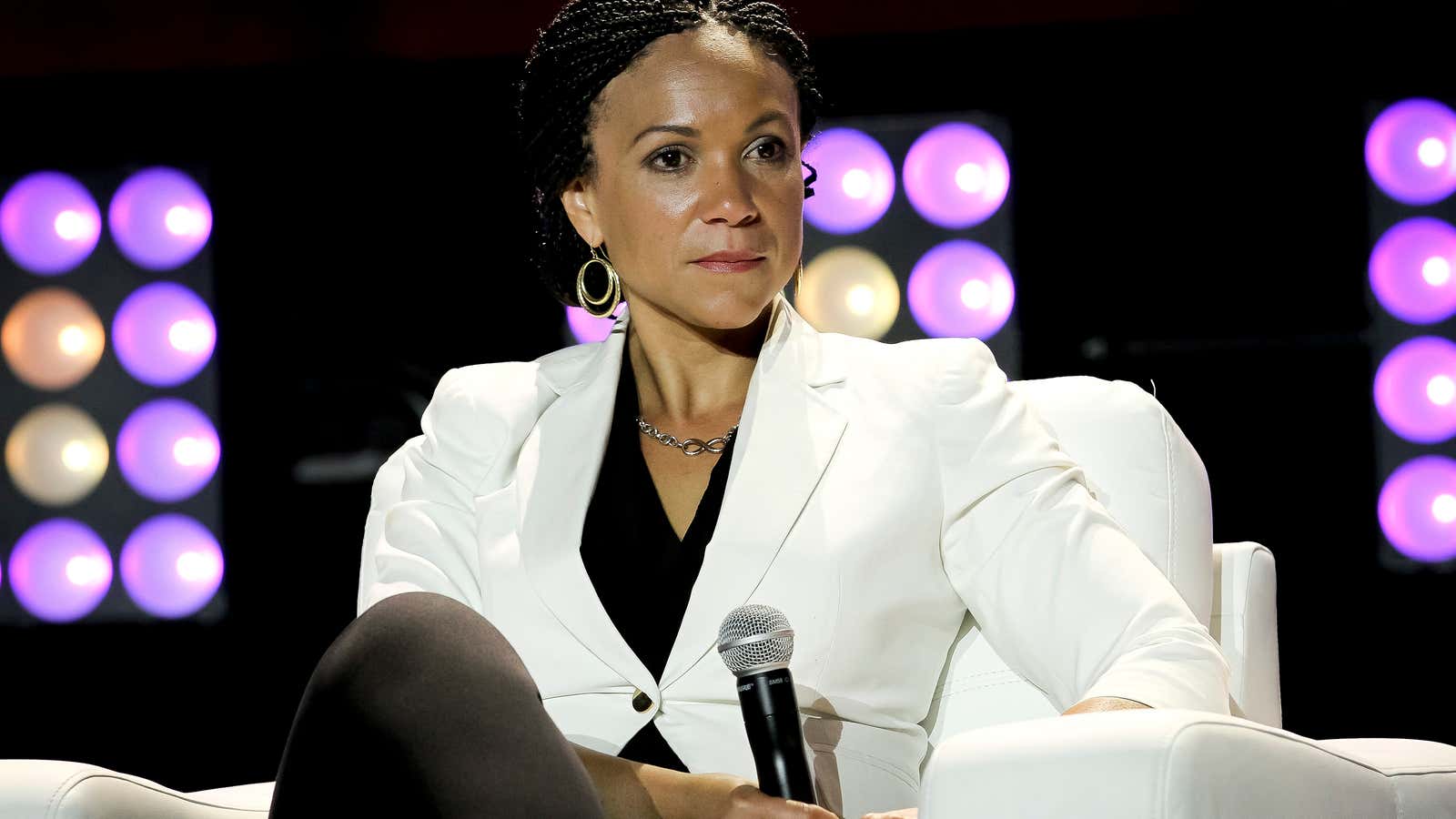For the past four years, political commentator Melissa Harris-Perry has been a shining light of intellect and sanity on MSNBC. But after an email in which Harris-Perry protested her treatment by network leadership was released publicly on Feb. 26, MSNBC officially severed ties with one of the most credible, authoritative, and intelligent assets in its arsenal.
The public conversation about politics will be far worse for it. Not only does Harris-Perry have a PhD in political science from Duke University and years of professorial work under her belt, she wrote one of the most significant modern treatises on critical race studies, Sister Citizen: Shame, Stereotypes, and Black Women in America. I wish I could say the black feminist perspective is something we’ll find elsewhere on cable news, but the fact is that Harris-Perry was a unique presence in this regard.
Now, after shamefully cutting back her screen time over the last few months and pre-empting her coverage with incremental campaign-cycle news, the network’s top brass have canceled her eponymous show. Why? For being what she always was: a confident, intelligent, forthright woman who will not accept anything less than the professional courtesy she deserves.
In the email to her staff, published with her blessing on Medium by one of the show’s former producers, Jamil Smith, Harris-Perry writes:
Here is the reality: Our show was taken — without comment or discussion or notice — in the midst of an election season. After four years of building an audience, developing a brand, and developing trust with our viewers, we were effectively and utterly silenced. Now, MSNBC would like me to appear for four inconsequential hours to read news that they deem relevant without returning to our team any of the editorial control and authority that makes MHP Show distinctive.
The purpose of this decision seems to be to provide cover for MSNBC, not to provide voice for MHP Show. I will not be used as a tool for their purposes. I am not a token, mammy, or little brown bobble head. I am not owned by [Andy Lack], [Phil Griffin], or MSNBC. I love our show. I want it back. I have wept more tears than I can count and I find this deeply painful, but I don’t want back on air at any cost.
Harris-Perry’s departure comes at a time when MSNBC, a one-time liberal bastion of cable news, is in flux. The network recently adopted a new slogan–the “Place for Politics”—and it has accordingly scaled back its roster of opinion-makers while boosting its straight political news coverage, perhaps in an effort to position itself as more ideologically neutral. Ronan Farrow and Joy Reid have been demoted to correspondent roles, and Rev. Al Sharpton was shuffled out of primetime to Sunday mornings. Meanwhile MSNBC has expanded roles for the likes of Rachel Maddow, Brian Williams, and the co-anchors of Morning Joe, Mika Brzezinski and Joe Scarborough.
Scarborough’s rise at MSNBC only makes the network’s silencing and unceremonious dumping of Melissa Harris-Perry all the more disturbing. Contrasted with Harris-Perry’s bursting knowledge base, Scarborough’s handle on history and the broader sociologies that drive modern American life simply doesn’t compare. MSNBC, which has long marketed itself as a champion for progress and fair coverage of women and minorities, appears to be committing to white-male mediocrity. And if this pans out, why should Scarborough change? America gives men like him no impetus to do better.
It didn’t have to be this way. When the network hired trans advocate and writer Janet Mock in 2014, it seemed to be making an active effort to include voices that news audiences wouldn’t find on CNN (and certainly not on Fox). Likewise when executives gave Harris-Perry carte blanche to feature writers, thinkers, and activists of color like Jelani Cobb, Akhil Reed Amar, Cristina Beltrán, and Cornell William Brooks, even as upwards of 75% of guests on shows like Face the Nation and Meet the Press were white men.
A quick glance at the MHP Show’s transcripts for 2015 and 2016 shows how the program made active, unrelenting efforts to diversify political discourse. Where else on network television are we going to find serious discussions about reparations for slavery, systemic inequality, and police violence against communities of color—conversations that reach beyond a bland regurgitation of Associated Press scoops? As recently as last week, Harris-Perry was making some of the only real inquiries into the Flint water crisis that weren’t being folded into election coverage.
Now she’s gone from our television screens. And it appears other talented journalists and commentators of color may be on their way out at MSNBC too–leaving us with an increasingly less diverse, and thereby less nuanced, news landscape.
I am both saddened and angered by MSNBC’s treatment of Melissa Harris-Perry, as a journalist and a fan. But I’m confident we’ll have plenty more opportunities to hear from her soon. “I am, in being a feminist and having been trained as a feminist, becom[ing] very good at using my voice,” she said in an address to the 2012 graduating class of Wellesley College. Along with her scores and scores of ardent supporters, I’ll be looking forward to what Melissa does next. But from MSNBC, she deserved better.
Or perhaps MSNBC didn’t deserve her.
